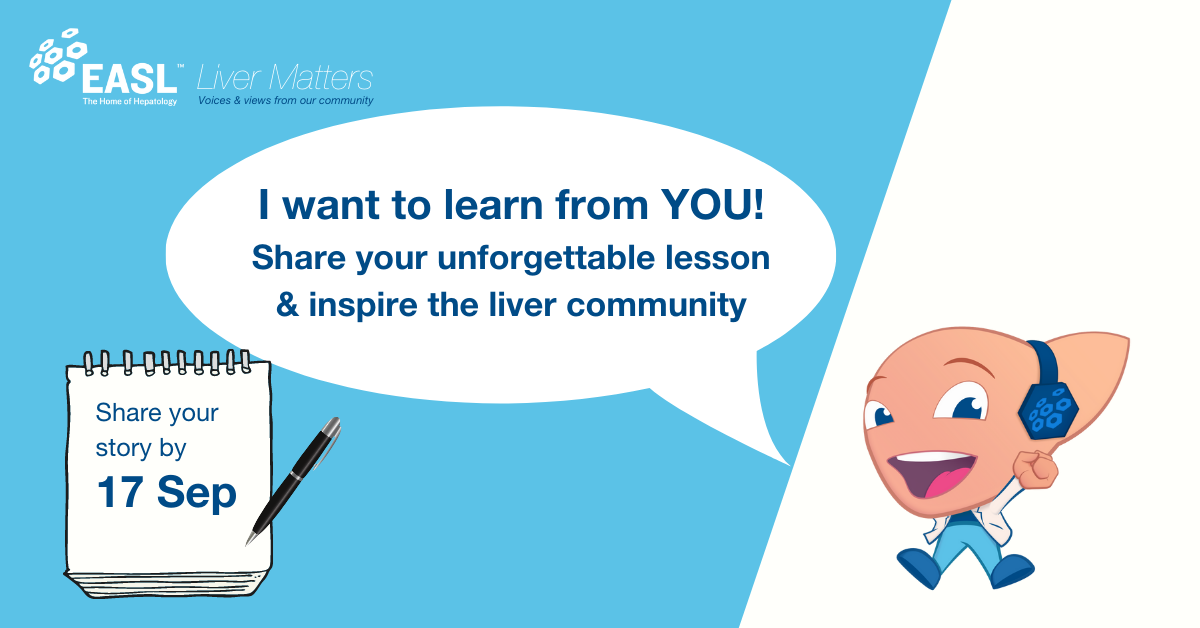An unforgettable lesson

Call for contributions
Dear reader,
Since its launch, EASL’s Liver Matters blog has been offering you content that veers away from the strictly scientific aspects of hepatology. We’re bringing you voices and views.
We’re paying particular attention to varied voices, stories, and paths of our members, those which can help and inspire other members of our community. To this end, we are inviting you to share a story or experience from your professional and/or personal life (e.g. during your studies, your first patients, or your early intern days), one that taught you an unforgettable lesson that has impacted strongly on your career in hepatology.
Please send in your story (500 words max) to easloffice@easloffice.eu by Friday, 17 September.
Please let us know if you want your name and affiliation to be published with your testimonial. If you do not ask to be named, your testimonial will be shared anonymously.
We are looking forward to reading your contributions,
The EASL Blog Team
Draw inspiration from Prof. Francesco Negro
[I learned that the younger generation of hepatologists] should be ready for changes that will from outside our discipline. [They] will need to learn and practice new skills, well beyond the mere technical ones (which will be replaced by artificial intelligence and may well also bring human agency into question).
When I was still a student, volunteering in a pathology research lab on experimental liver toxicology, a post-doc in my lab contracted hepatitis B while holidaying abroad. She ran a fulminant course and tragically died within 48 hours. There was nothing to save her: no antivirals, no vaccine, no liver transplantation. Hepatitis C was then still called non-A and non-B hepatitis, with no treatment available. That was hepatology then: a virtually open field.

